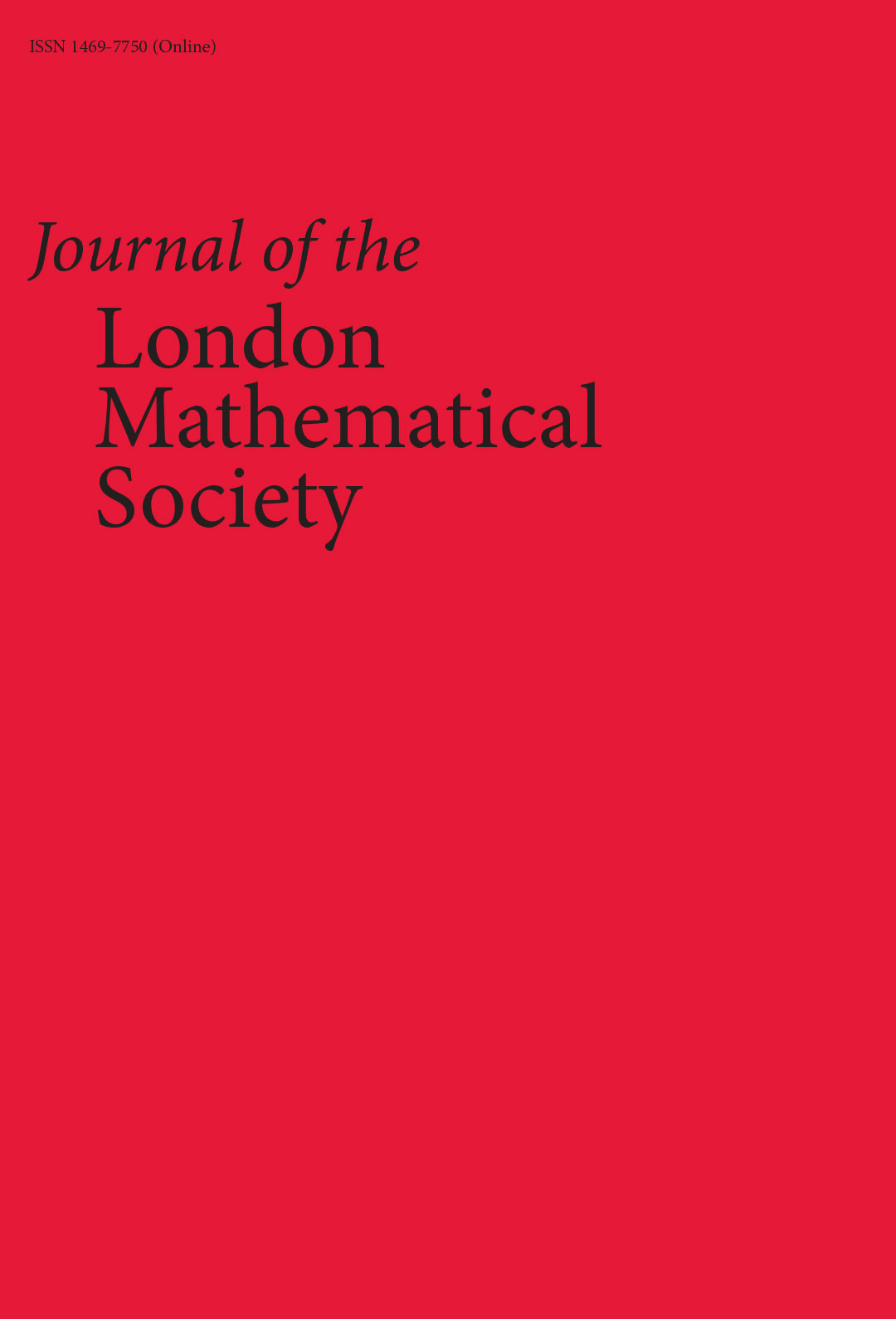
About
The Journal of the London Mathematical Society has been publishing leading research across a broad range of mathematics since 1926.
Articles published in the Journal of the London Mathematical Society represent a significant advance in mathematical knowledge, or are deemed to stimulate new interest and research activity. The articles have a minimum length of 18 pages and no maximum length.
The Journal of the London Mathematical Society shares an Editorial Board with the Bulletin of the London Mathematical Society. The Bulletin of the London Mathematical Society publishes concise research articles (20 pages and below). Both journals employ the same high standard of peer review.
Not-for-profit publishing
The Journal of the London Mathematical Society is wholly owned and managed by the London Mathematical Society as one of its charitable activities.
100% of the funds generated by the Society’s publications are reinvested in mathematics, supporting mathematicians and mathematics research in the form of research grants, conference grants, prizes, initiatives for early career researchers, and the promotion of mathematics.
Publishing your research in the Journal of the London Mathematical Society directly supports the charitable work of the Society.
Submitting to the Journal
Before submitting an article to the Journal of the London Mathematical Society, we recommend that authors read the submission guidelines for the Journal.
All articles published in this journal are peer reviewed. Editors may reject papers without external review. Read our full peer review policy.
If a paper is accepted for publication in the Journal of the London Mathematical Society, it will be sent to the publisher for typesetting. Find out more about what happens to an article after it is accepted.
Open Access
The Journal of the London Mathematical Society is a hybrid open access journal. By default, articles in the journal will be published on a subscription basis and only be accessible to journal subscribers. The journal has options for gold and green open access publication.
Before submitting to the Journal of the London Mathematical Society, authors should check any open access requirements from their institution or funder.
If you are required to publish on an open access basis but you cannot identify a compliant route with Journal of the London Mathematical Society, please contact the journal team before submitting.
See our open access page for more information.
Subscribe
Click here to subscribe to this journal or renew your current subscription.
Members of the London Mathematical Society can receive free online access to the following publications if they have signed up for free online access via their LMS membership record.
- Bulletin of the London Mathematical Society
- Journal of the London Mathematical Society
- Proceedings of the London Mathematical Society
Free online access to these three journals can be activated via the LMS Membership Profile here: www.lms.ac.uk/user and selecting the preferred journals under the “My LMS Membership” tab.
The LMS will then notify Wiley, who will issue members with a username and password to log in to the Wiley Online Library.
Contact
Submissions
For any queries about submitting to the journal, articles under review, the peer review process or the submission system, contact the LMS team: lmsjournals@lms.ac.uk
Accepted articles
For accepted articles which have not been passed to the publisher for production, contact the LMS team: production@lms.ac.uk
For accepted articles which have been passed to Wiley for production, contact the Wiley team: jlms@wiley.com
Rights and permissions
Find information on the Wiley website.
All other enquiries
Contact the LMS team: lmsjournals@lms.ac.uk


